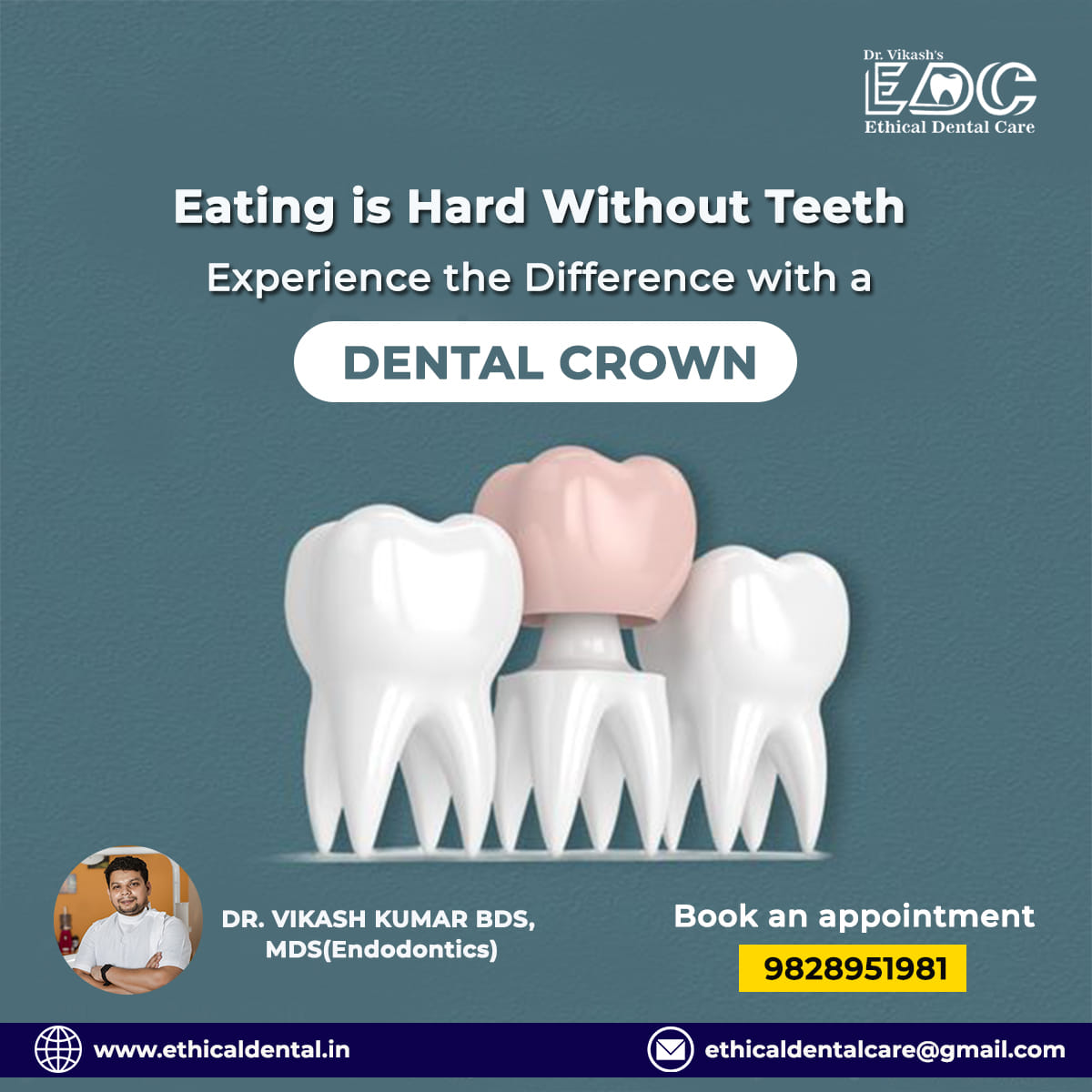
Dental crowns are caps for a damaged tooth. It can be made from a variety of materials, including porcelain, zirconia, ceramic, metals like gold, chromium or combination of metals. A natural appearance that doesn’t detract from your smile may also be a priority for you. Read below the various options and figure out what best meets your needs.
TYPES OF DENTAL CROWNS
1. ZIRCONIA
These dental crowns are made up of an artificial stone, called Zirconium. They are excellent in hardness and have the best durability to withstand any kind of chewing or biting forces.
They are mostly used on molars and premolars because of the large amount of forces and pressure exerted by the opposite arch. There is no chance of breaking or cracking of the zirconia crown.
Zirconia crowns are excellent in biocompatibility which means, their placement does not cause any pain and inflammation of the gums. They are easily adapted to your oral environment, as it is an unreactive material.
One potential disadvantage of a zirconia crown is its opaque appearance, which can make it look less than natural. Although it may be less of an issue for the teeth in back of your mouth.
2. E-MAX CROWNS
It is made up of Lithium Disilicate Glass material. It is the most desirable material for the crown/veeners because of its translucency. This is allows the most amount of light pass through the crown and make it look more natural. Hence, it is mostly used for the front teeth or canines. They provide excellent aesthetics.
They are likely the most durable material. The crown is usually shaped from a single block of ceramic, which makes it very tough and durable. E-max crowns are less likely to crack or fracture during clinical usage. They are less likely to chip when compared to zirconia crowns.
E-max crowns possess excellent strength and fracture resistance; these crowns can be prepared in very thin sections. This not only ensures optimal esthetics but also requires minimal removal of natural tooth structure during preparation. When you have more tooth structure, your tooth stands stronger.
The only disadvantage of this crown is its high price compared to other dental crowns.
3. METAL CROWNS
These are made of alloys of gold or base metals like chromium, nickel. Out of all dental crown materials, metal crowns are the strongest and the most resistant to chipping, breaking, and wear.
However, the visible metallic color make them non – appealing and hence, metal crowns are not commonly used in dentistry today.
Metal crowns exhibit excellent strengths in withstanding any biting or chewing forces. They cause minimal wearing off of the surrounding teeth as compared to other materials.
It is bio-compatible in nature and needs very little trimming of the natural tooth.
It might cause metal allergies in some cases.
4. POCELAIN FUSED METAL CROWNS(PFM)
Metal crowns are sometimes prepared with porcelain fused to them and are referred to as porcelain fused to metal crowns (PFM).
They have a strong metal core inside and then a layer of porcelain is fused on it. They are as strong as a metal crown but because of the porcelain fusing, they look a lot more natural. It is still widely used, but nowadays ceramic crowns are more preferred.
Unlike the all-metal crowns, PFM crowns can be easily used on a tooth that is visible. The quality of these crowns is very durable and superior as they have metal in their core-shell. They have enough strength, are highly durable, and can easily bear strong chewing forces.
But there are a number of disadvantages related to PFM.
The porcelain crowns can cause wear and tear of the surrounding teeth causing pain, infections and inflammation of the gums. They are more vulnerable to breaking and chipping than all-metal crowns.
Since the porcelain covering is translucent, it sometimes makes the underlying metal visible which can be embarrassing for the patient. In case the gums recede, problems at the gum line of the crown may arise.
PFM has the highest failure rate as compared to other dental crowns.
5. TITANIUM ALLOY CROWNS
Titanium porcelain crowns, as the name suggests, are made of titanium. This metal is extremely lightweight, yet extremely sturdy. It has a smooth surface and it is abrasion resistance.
It is best suited for people having any metal allergies. Dentists usually recommend titanium crowns as a replacement for chewing teeth rather than front teeth to ensure the best cosmetic results.
They are highly bio-compatible and also hypo allergic in nature. It neither gets stained nor causes bleeding and discolored gum lines.
But they also have their own drawbacks.They are unnatural in color and provides with no aesthetic solution.


